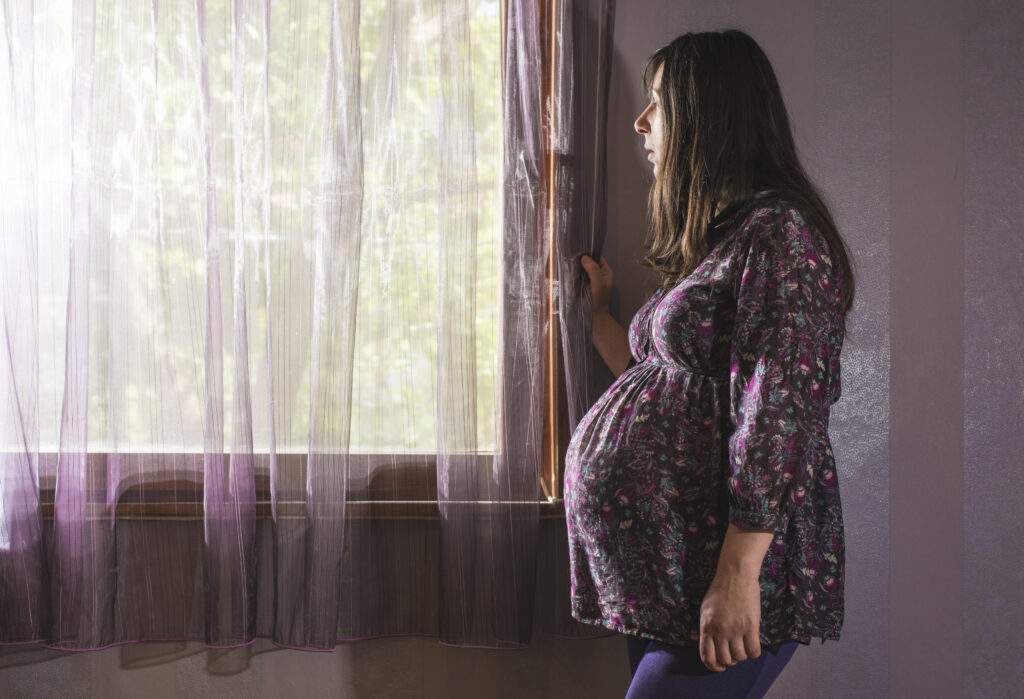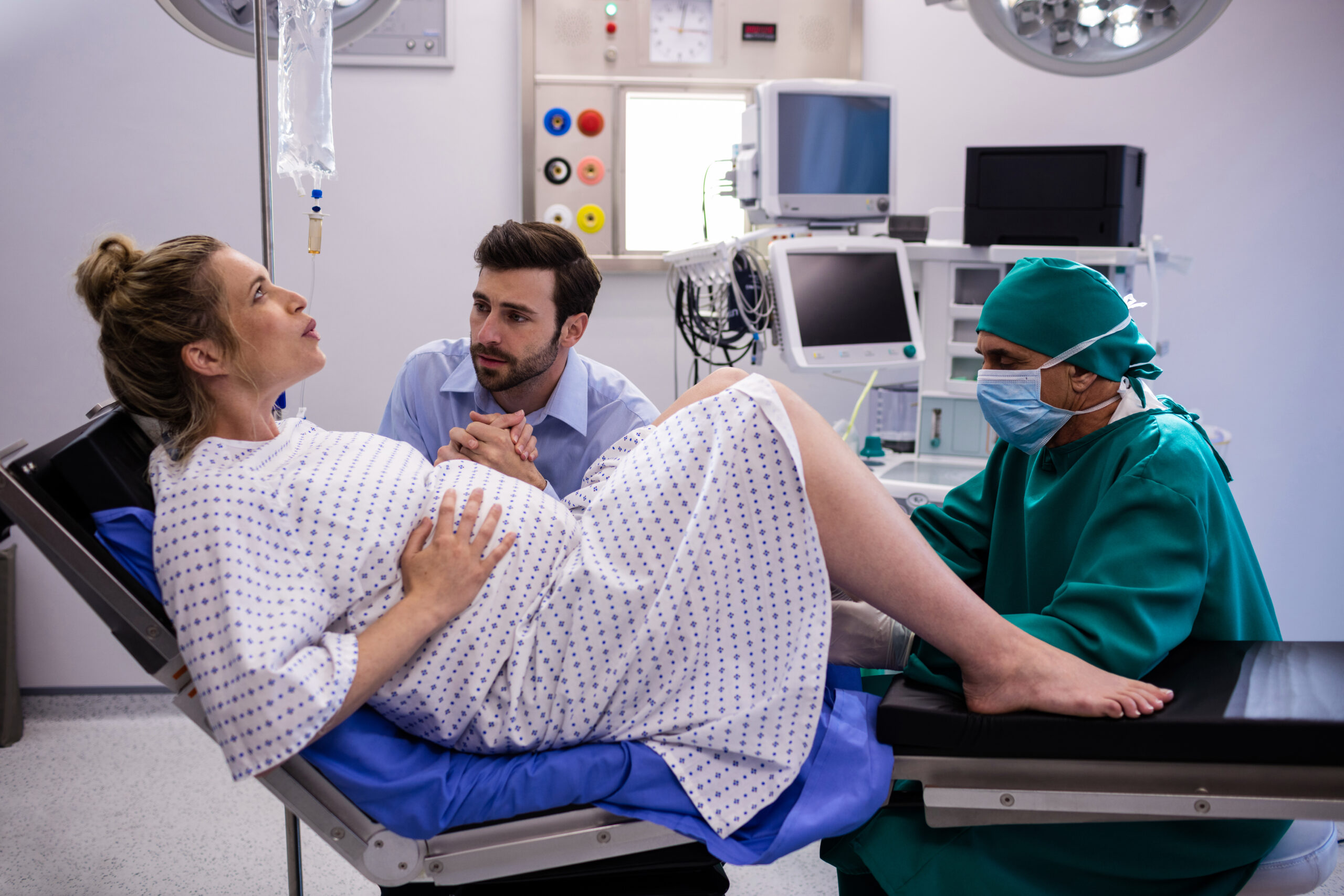Pregnancy is often considered one of the most exciting and fulfilling phases of life. However, for some expectant mothers, complications can make the journey more challenging, requiring specialized care. High-risk pregnancy care is essential to ensure the health and safety of both the mother and the baby. In this article, we’ll explore what high-risk pregnancies are, why they occur, and how specialized care in Kochi can make a difference.
What is a High-Risk Pregnancy?
A high-risk pregnancy is one in which the health of the mother, baby, or both is at greater risk of complications compared to a typical pregnancy. These complications can arise due to pre-existing health conditions, issues during pregnancy, or even factors related to the mother’s lifestyle.
High-risk pregnancy care focuses on early diagnosis, careful monitoring, and tailored treatment plans to reduce risks and ensure a safe delivery.

Causes of High-Risk Pregnancies
Several factors can contribute to a pregnancy being classified as high-risk. These include:
- Maternal Age
- Women below 17 or over 35 are at a higher risk of complications.
- Pre-existing Medical Conditions
- Health issues such as diabetes, high blood pressure, kidney disorders, or autoimmune diseases can affect pregnancy outcomes.
- Pregnancy Complications
- Problems such as preeclampsia, gestational diabetes, or abnormal placental positioning often require specialized care.
- Multiple Pregnancies
- Carrying twins, triplets, or more increases the likelihood of complications like premature birth.
- Lifestyle Factors
- Smoking, alcohol consumption, and poor nutrition can adversely impact both mother and baby.
- Previous Pregnancy Complications
- Women who have experienced miscarriages, stillbirths, or preterm deliveries in the past may be more likely to face challenges.
Why High-Risk Pregnancy Care is Essential
High-risk pregnancy care is not just about managing complications—it’s about prevention, education, and providing emotional support. The primary goal is to identify risks early, monitor the pregnancy closely, and take proactive measures to avoid or mitigate complications.
In Kochi, hospitals and clinics specializing in maternal health care are equipped with advanced technology and experienced pregnancy specialists. This ensures that expectant mothers receive the highest standard of care tailored to their unique needs.

What to Expect During High-Risk Pregnancy Care in Kochi
1. Advanced Prenatal Testing
High-risk pregnancy care involves frequent check-ups and advanced diagnostic tests, such as:
- Ultrasound Scans: To monitor the baby’s growth and development.
- Blood Tests: To check for gestational diabetes, anemia, or infections.
- Non-Stress Tests: To assess the baby’s heart rate and movements.
2. Specialized Consultations
Pregnancy specialists in Kerala collaborate with other experts, such as endocrinologists or cardiologists, to address specific health concerns. This multidisciplinary approach ensures comprehensive care.
3. Personalized Birth Plans
Every high-risk pregnancy is unique, and the care plan is tailored accordingly. This includes determining the safest mode of delivery, whether vaginal or cesarean.
4. Continuous Monitoring
For conditions like high blood pressure or gestational diabetes, consistent monitoring is key to managing risks. Wearable devices and regular hospital visits are part of the care regimen.
Click here to read more about pregnancy issues
Maternal Health Care in Kochi: Why Choose This City?
Kochi has emerged as a hub for advanced healthcare services, and maternal health care is no exception. Here’s why choosing high-risk pregnancy care in Kochi is a wise decision:
1. Experienced Specialists
The city boasts a pool of highly qualified pregnancy specialists with years of experience handling complex cases.
2. State-of-the-Art Facilities
Hospitals in Kochi are equipped with cutting-edge technology for diagnostics, fetal monitoring, and neonatal care.
3. Holistic Support
From nutrition counseling to mental health support, maternal health care providers in Kochi adopt a holistic approach to ensure overall well-being.
4. Cost-Effective Options
Compared to other major cities, Kochi offers world-class care at relatively affordable prices, making it a preferred destination for expectant mothers.

How to Reduce Risks During Pregnancy
While medical care is crucial, expectant mothers can take proactive steps to minimize risks.
- Maintain a Balanced Diet
- Eat nutrient-rich foods, including fresh fruits, vegetables, lean proteins, and whole grains.
- Avoid processed foods, caffeine, and raw or undercooked meat.
- Stay Physically Active
- Engage in light exercises such as walking or prenatal yoga, as recommended by your doctor.
- Follow Medical Advice
- Attend all scheduled prenatal visits and follow the treatment plan.
- Manage Stress
- Practice relaxation techniques like meditation or deep breathing to stay calm.
- Avoid Harmful Substances
- Completely avoid alcohol, tobacco, and recreational drugs.
Conclusion
High-risk pregnancy can be a challenging experience, but with the right care and support, a safe and healthy delivery is possible. Kochi stands out as a destination for world-class maternal health care, offering expectant mothers access to experienced specialists and state-of-the-art facilities.
If you or someone you know is navigating a high-risk pregnancy, reach out to Lifeline Hospital, the best obstetrics and gyneacology hospital in Kochi for guidance. Early intervention and personalized care can make all the difference in ensuring a happy and healthy outcome for both mother and baby.
FAQs
What is a high-risk pregnancy?
A high-risk pregnancy is a pregnancy that carries a greater risk of complications for the mother or the baby. This could be due to various factors such as advanced maternal age, pre-existing medical conditions, multiple pregnancies, or complications that arise during pregnancy.
What are some common complications of high-risk pregnancies?
High-risk pregnancies often lead to complications such as preeclampsia, gestational diabetes, premature birth, low birth weight, and palantal issues.
How often should I see my doctor during a high-risk pregnancy?
The frequency of your doctor visits will depend on the specific complications or risk factors associated with your pregnancy. However, it’s generally more frequent than a normal pregnancy, often involving weekly or even bi-weekly check-ups.
What kind of tests and screenings are involved in high-risk pregnancy care?
High-risk pregnancies often necessitate additional tests and screenings, such as frequent ultrasounds, non-stress tests, biophysical profiles, amniocentesis, and chorionic villus sampling.
How can I reduce the risks associated with a high-risk pregnancy?
Regular prenatal check-ups, a healthy diet, regular exercise, adequate rest, avoiding harmful substances like alcohol and tobacco, and managing stress can help reduce high-risk pregnancy risks.

